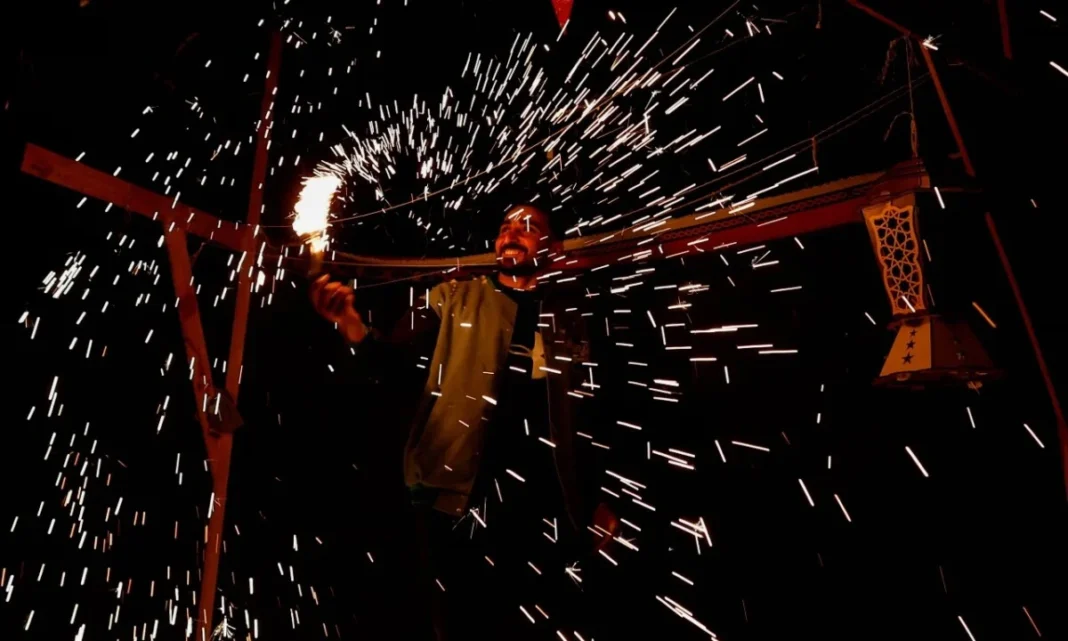Contemplating beyond religious bounds, highlighting universal compassion amidst Gaza’s plight, urging collective empathy in confronting injustice.
Tahmima Anam
My family in Bangladesh will come together to fast and pray. Yet our feelings for Palestinians are based on secular values of equality and justice
I have not been a devout Muslim. I don’t fast or pray. I have never been to Mecca to make the hajj pilgrimage. I’ve only read the Qur’an in English – not in Arabic, as many Bangladeshi children do.
Instead of learning Arabic verses, I was raised on a diet of Marx, Mao and liberation theology. My bedtime reading was Nehru’s Letters from a Father to a Daughter, written while he was imprisoned alongside Mahatma Gandhi during the Indian independence struggle.
Like many men and women of their generation, my parents were freedom fighters in the Bangladesh war of independence. That war was not about religion; in fact, it was about rejecting an exclusively religious identity. When the British left India in two halves in 1947, they created a geographical impossibility of a country: Pakistan, irreparably divided between East and West, two halves whose people spoke different languages and had entirely different relationships to Islam.
As Bengali East Pakistanis, my parents, in the struggle for self-determination, privileged as primary their Bengaliness – their secular, cultural, non-religious identity. Today, Bangladeshis are, for the most part, devout Muslims – yet we celebrate cultural festivals whose symbolism and iconography are rooted in the syncretic tradition in which they were born.
The Bangladesh independence movement and the movement for the liberation of Palestine have always been allied. Our fates were similarly sealed in 1947, and between the exit of the British and the end of united Pakistan, we existed in parallel worlds. The Palestine Liberation Organisation, like the Awami League, was based on secular principles of national freedom. But in 1971 we achieved our freedom, and they did not. My father used to remind me of this fact as I was growing up – it was a trump card he would use whenever he imagined I was taking my freedoms for granted. “At least you have a country,” he would remind me. “I was born in East Pakistan; you were born in liberated Bangladesh. Imagine if you had been born in Palestine.”
His words have echoed profoundly for me in these past 156 days, as we have witnessed the unimaginable suffering of the people of Gaza. There is no language to encompass the 30,700 deaths, the obstruction of aid, the bombing of hospitals and refugee camps, and now the starvation of an entire population under siege.
I have been lucky enough to have had two role models who demonstrated both religious devotion and a commitment to secular values of equality and justice. The first is my mother, who prays five times a day, but has just celebrated International Women’s Day by marching on the streets of Dhaka demanding an end to all forms of oppression against women. The second is her mother before her, who was widowed young and raised children against all odds, her faith a huge source of strength in her lifelong struggle against poverty and the invisibility of being a single mother.
For Islamic feminists, the Qur’anic vision of a religious community without a clergy, in which worshippers have a direct, unmediated, democratic relationship with God, is the basis for a faith that embraces gender equality. I love this interpretation, but in my own narrow experience of it, religion has not gone hand in hand with justice, and so I have shunned it. I resist being identified as a Muslim writer; I cringe when people refer to the Muslim world, as if such a homogenous, flattening thing exists. But this winter, as the people of Gaza have been subject to collective punishment, as the mothers of Gaza have held the shrouds of their children, I wonder if, perhaps, it is time to embrace my faith.
The month of Ramadan is about to begin. In my household in Dhaka, my parents will rise before dawn, eat a moonlit meal, and fast until sundown. Families will gather for the iftar meal; people will say the long tarawih prayers, their connection to their faith deepening with a global, collective experience of prayer and fasting.
Sami Tamimi’s Palestinian recipes for iftar: a spicy maqluba of chicken, rice and veg, a pickled aubergine with coriander seeds, and a spicy herb and salted courgette salad.
Maqluba, spicy salad and pickles: Sami Tamimi’s Palestinian recipes for iftar
Read more
And yet, the Israeli minister Amihai Eliyahu, who has previously suggested Israel could use nuclear weapons in Gaza, has made a call to “wipe out” the month of Ramadan. This is only one small example of the systematic dehumanisation of Palestinians and a pervasive anti-Palestinian racism and Islamophobia that has been laid bare. The unprecedented levels of violence have been met, here in the UK, with attempts to criminalise dissent.
But this is not, and should not be, an issue of religious solidarity. My outrage at what is happening in Gaza – and the way we have been made to witness it mutely and without protest – does not come from a sense of solidarity with other Muslims. We should not be heartbroken over what is happening in Gaza because we are Muslims, but simply because we are human. If anything, recent events are reminders that commitments to certain identities, whether ethnic, religious, or national, can blunt our humanity, and blind us to institutionally sanctioned forms of violence. How else can we explain the continued bombing of civilians or a looming famine?
It would be a mistake to equate religious solidarity with basic humanity. As Kamila Shamsie has put it, this is the defining moral issue of our time, and we must, Muslims and non-Muslims alike – at Ramadan and at any time of the year – join hands in ending the violence.
Courtesy: The Guardian

